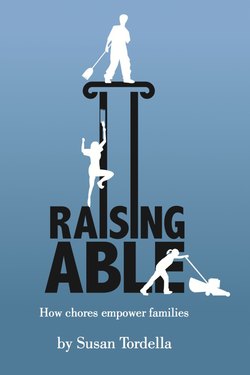Читать книгу Raising Able - Susan Tordella - Страница 47
На сайте Литреса книга снята с продажи.
Everyone helps at the Children’s Farm School
ОглавлениеThe Children’s Farm School in Lake Elmo, Minn., embraces chores and communal work. Preschoolers regularly tackle “big jobs” to maintain the farm and school building. Founded in 1974, the preschool is on a former dairy farm outside of St. Paul. The classroom is in the old farmhouse surrounded by fields, woodlands and ponds. The school’s philosophy is that children will learn, behave and become better people when they have a purpose. The daily routines are set up to incorporate chores.
“Big jobs” which require more than one person to work together include watering lettuce; winding up or moving the hose; hoeing or chopping weeds in the garden and moving them to the compost pile by wheelbarrow; making zucchini cake – sitting together to grate the zucchini and deciding together when there are two cups full; refilling the sand table, watering plants; assembling new furniture and more.
Teachers plan big jobs and are alert for spontaneous big jobs. They supervise, train, provide child-sized tools and create a cooperative and positive environment.
The children need no coercion to contribute. Instead, they rely on the Tom Sawyer factor. Children want to pitch in and celebrate the outcome.
For example, teachers start a day by providing shovels and spades for every child to help dig a diversion ditch to eliminate a huge puddle in the parking lot created from overnight rain.
Teachers asked the children, “Do you think the water is flowing in this direction?” “The children encouraged each other: ‘Deeper here,’ ‘Dig over there.’ No one wanted to stop until the problem was solved. The children cheered when the water began to flow out of the puddle.” (Source: Nancy P. Jones.)
The school facilitates a self-sufficiency that is unfamiliar to children who have been bred to be passive consumers while parents, teachers, day care providers and nannies scurry to eliminate challenges and avoid mistakes. Farm school pupils fulfill one of Adler’s basic human needs: to belong, be needed and be useful.
Teachers and observers notice that children behave differently after they collaborate to solve problems on real-life tasks to maintain their school and farm.
“Children who work together to drag a hay bale to the pony can better share toys in the sandbox. Hesitant children who are asked to help shovel snow become more confident when they later tackle new puzzles. Aggressive children who need to feel important become more friendly after helping pull cornstalks to feed to the pigs” (Nancy P. Jones.)
The Children’s Farm School shows that twenty-first century homes and schools can create opportunities for children to contribute by meaningful work without pay or praise, when adults foster a different attitude and encourage participation.
